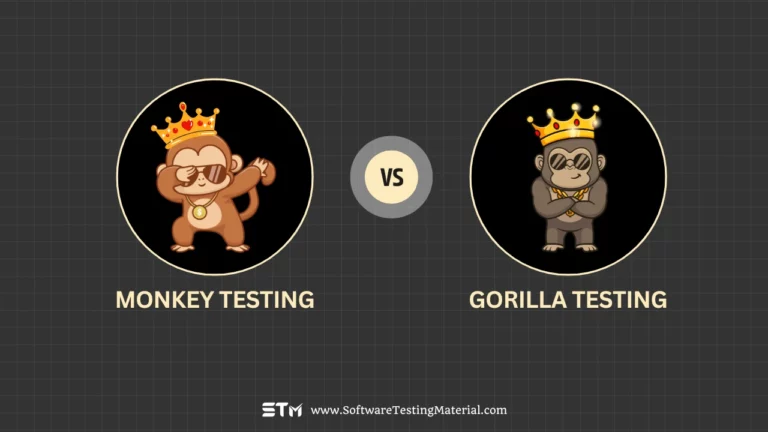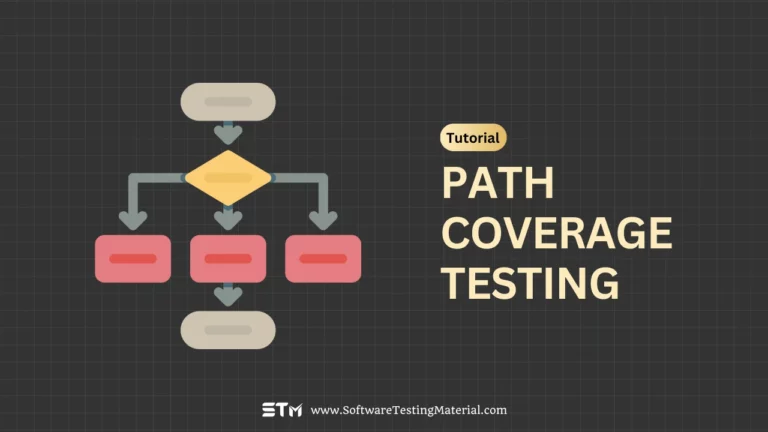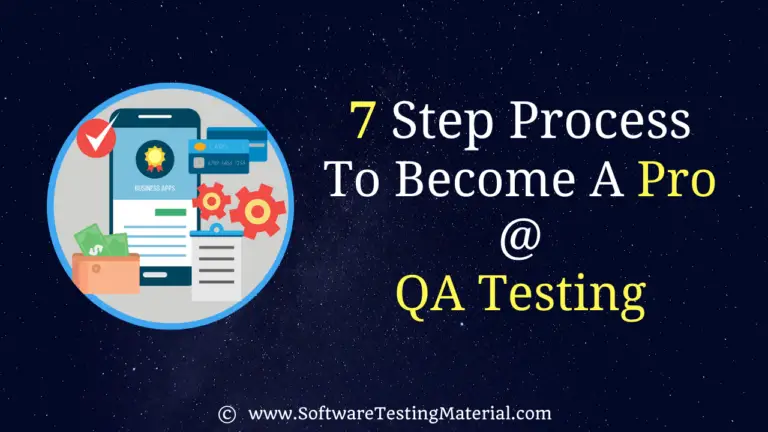How to Prepare for a Software Testing Interview | The Ultimate Guide
Step-by-step guide on how to prepare for a Software Testing interview.

Are you preparing for a software testing interview?
Earlier, I shared my thoughts on how to become a Software Tester and must-have skills of a Software QA. Today, I will provide you with the ultimate guide to preparing for a software testing interview.
We will discuss topics such as what questions are likely to be asked, what skills you need to succeed, and how to showcase your experience.
We’ll also provide tips on how to stand out from the competition and land the job of your dreams! Let’s get started!
#1. Preperation for a Testing Interview
Software testers are in high demand, so it is important that you put your best foot forward during the interview process.
Interviews can be intimidating, but with the right preparation, you can increase your chances of landing the job!
#1. Prepare basic testing concepts
One of the first things you need to do is to make sure that you are familiar with the basic concepts of software testing.
You should be able to answer questions such as “What is black box testing?” and “What is a test case?”
In addition to being familiar with the basics, it is also important that you are up-to-date on the latest trends in software testing.
Knowing all these will show the interviewer that you are interested in keeping up with the latest trends.
#2. Showcase Your Experience
In addition to being familiar with the basics of software testing, it is also important that you are able to showcase your experience.
If you have worked on projects in the past, be sure to mention them during the interview.
You can discuss the challenges you faced in testing and what you learned from the experience.
This will show the interviewer that you have real-world experience and that you are able to learn from your mistakes.
If you do not have any direct experience, you can still showcase your skills by discussing projects that you have worked on in other roles.
For example, if you are a SDET, you can discuss a time when you had to debug a piece of automation scripts code.
This will show that you have the skills necessary to be a successful automation tester.
#3. Questions on which you have never worked on
Be honest if you have never worked on a certain concept or tool.
Do not try to bluff your way through an answer. The interviewer will likely figure it out and it will reflect poorly on you.
That being said, if you are able to discuss the concepts in general terms, it will show that you are willing to learn new things.
For example, if you are asked about a test automation tool that you have never used before, you can discuss the general concept of the tool and how it is used.
This will show that you are familiar with the basics and are willing to learn more about the tool if given the opportunity.
#4. Prepare answers for the tricky questions beforehand
There are certain questions that are commonly asked in software testing interviews, and it is important to have answers prepared for these ahead of time.
Some examples of tricky software testing interview questions include:
- Why did you choose Software Testing as a career?
- What are some best Software Testing books you read?
- What is your experience with banking domain?
- What is your experience with software testing?
- What makes a good tester?
- Can you describe a time when you found a bug that no one else had found?
- What is your experience with test automation?
- How would you approach testing a new application?
- Have you ever encountered a problem while testing an application? If so, how did you handle it?
- What interests you about this position?
By preparing answers to these questions ahead of time, you will be able to showcase your skills and experience in a more confident manner. This will give you a better chance of impressing the interviewer and landing the job!
Remember, practice makes perfect! The more prepared you are for the interview, the better your chances of landing the job.
#5. Prepare for Behavioral Questions
In addition to questions about your experience and technical knowledge, you may also be asked behavioral questions.
Behavioral questions are designed to assess your ability to handle real-world situations.
For example, you may be asked the following.
- What is your approach when you disagree with a coworker?
- What are your thoughts regarding some principles that every software tester should meet?
- Tell me about an instance when you had to get information from someone who wasn’t responsive. What did you do and how did you handle ?
It is important that you are prepared to answer these types of questions.
You should have a few examples of situations that you have handled well in the past.
These examples will show the interviewer that you have the skills necessary to be successful in the role.
#6. Know about tools
When it comes to Software Testing, there are a variety of tools available to help testers manage their test cases and track defects.
Some interviewers may ask you about your thoughts on new testing tools or techniques.
The most popular types of tools include:
- Test case management tools: These tools help testers to organize and manage their test cases. They also provide features such as reporting and tracking. Here are the best test management tools.
- Defect tracking tools: These tools help testers to log and track defects. They also provide features such as reporting and assignment. Here are the best defect tracking tools.
- Automation testing tools: These tools help testers to automate test cases, reduce human intervention, achieve speed, efficiency, and reliability. Here are the best test automation tools.
When preparing for a software testing interview, it is important that you are familiar with the most popular tools.
This will show the interviewer that you have the skills and knowledge necessary to be successful in the role.
To learn more about the most popular tools, check out our ultimate guides using the links given above.
#7. Know – How To Write Test Cases Manually
One of the most important skills for a Software Tester is the ability to write test cases. If you are a freshers, don’t miss to check this guide – how to write test cases effectively
Test cases are used to document the steps necessary to reproduce a defect.
They are also used to verify that a fix has been properly implemented.
In order to write effective test cases, you must have strong attention to detail and good problem-solving skills.
When preparing for a software testing interview, you should be prepared to write test cases.
The interviewer may ask you to write test cases for a specific scenario.
#8. Know Test Artifacts
In addition to writing test cases, Software Testers must also be familiar with other test artifacts.
Test artifacts are documents that are used during the software testing process.
They can include things like requirements documents, test plans, and defect reports.
Being familiar with these test deliverables (test artifacts) will show the interviewer that you have the skills and knowledge necessary to be successful in the role.
#9. SQL Basics
As a software tester, you may be asked questions about databases during an interview. SQL (Structured Query Language) is a standard language for interacting with databases.
By learning some basics of SQL, you can better understand how databases work and be prepared to answer questions about them during an interview.
Additionally, understanding SQL can be helpful in your day-to-day work as a software tester. For example, you may need to query a database to verify that data is being stored correctly.
With a little bit of effort, you can be up and running with SQL in no time. Check our detailed guide SQL for Software Testers.
#2. Software Testing Interview Preparation Checklist
- Do research on the company ahead of time
- Prepare answers to common questions
- Practice interviewing with a friend or family member
- Dress to impress
- Arrive early to the interview
- Be confident and showcase your skills!
By following these tips, you will be well on your way to impressing the interviewer and landing the job.
#3. Skills You Need To Have
In order to succeed in a Software QA role, there are certain skills that you need to have.
- Logical Thinking
- Education Qualification
- Having strong communication skills
- Good knowledge on Software Testing Concepts
- Certifications like ISTQB certification
- Analytical skills
- Passion
- Knowledge on Testing Tools
- Technical Skills
- Database Testing
When preparing for your interview, make sure to highlight examples of times when you have used these skills in the past. This will help the interviewer see that you have what it takes to succeed in the role.
If you don’t have experience in software testing, that’s okay! There are other skills that you can highlight that will be helpful in the role.
Some examples of transferable skills include:
- Being able to learn new things quickly
- Having strong attention to detail
- Being able to work well under pressure
- Having strong analytical skills
Remember, the more prepared you are for the interview, the better your chances of landing the job.
#4. Phases of the Interview Process
There are typically three phases to the interview process:
The first phase is the screening phase. This is where the interviewer will ask you general questions about your experience and skills.
The second phase is the technical phase. This is where the interviewer will ask you more specific questions about your experience with software testing.
The third phase is the behavioral phase. This is where the interviewer will ask you questions about your behavior in past situations.
By being prepared for all three phases of the interview process, you will be more likely to land the job.
#5. Getting Started with the CV
Now that you know how to prepare for a software testing interview, it’s time to start working on your CV.
Your CV is one of the most important documents you will ever create. It is your opportunity to showcase your skills and experience to potential employers.
To get started, take a look at our Sample CV for a software tester.
This CV can be used as a template to create your own. Be sure to tailor the CV to fit your own experiences and skills. With a little effort, you can create a CV that will help you land the job of your dreams.
#6. Negotiating the software engineer offer package
After you’ve managed to successfully interview and receive an offer from the company, it’s now time to negotiate your Software Engineer Offer Package. This can be a difficult task, but by following these tips, you’ll be prepared to ask for what you deserve.
The first step is to research the average salary for your position in the area that you live in. You can do this by searching online or talking to people who work in the same field. Once you have an idea of what the average salary is, you can start to negotiate your own salary.
When negotiating your salary, it’s important to keep in mind your experience and skillset. If you have more experience than the average Software Engineer, you should ask for a higher salary. Similarly, if you have a unique skillset that would be valuable to the company, you should also ask for a higher salary.
It’s also important to remember that your Software Engineer Offer Package is not just about your salary. You should also negotiate your vacation days, health insurance, and other benefits. By asking for what you deserve, you’ll be more likely to get it.
#7. What to wear to your interview
As you know, first impressions are important, especially when it comes to job interviews. The way you dress can say a lot about you and your qualifications for the job.
When deciding what to wear to your tech interview, it’s important to remember that you want to look professional. You don’t need to wear a suit, but you should avoid wearing anything that is too casual.
Some good options for what to wear to your tech interview include:
- A collared shirt
- A formal pants (Black pants, khakis)
- Clean dress shoes
- Neat, professional hairstyle
- Little or no jewelry
Avoid wearing anything that is too revealing or that might make you look unprofessional. You want the interviewer to focus on your qualifications, not your clothing.
By following these tips, you’ll be sure to make a good impression at your tech interview.
#8. What to bring to your Software QA Interview
It’s important to remember what to bring with you to atttend an interview. This includes both items that will help you during the interview and items that will make the interviewer remember you after the interview is over.
Some of the most important things to bring with you to your Software QA interview include:
- Resume
- Notepad and pen
- References copy (if any)
By bringing these items with you, you’ll be better prepared to answer questions and make a good impression. You want the interviewer to remember you as a qualified candidate, not as someone who forgot to bring anything with them.
#9. Questions to ask the interviewer
Asking questions is a great way to show that you’re interested in the position and that you have the skillset to do the job. Here are some great questions to ask during your Software Testing interview:
- What does a typical day look like for this position?
- What are the most important qualifications for this position?
- What are the most important skills for this position?
- What is the company culture like?
- What are the next steps in the interview process?
- What tools, tech stack etc., does the company use?
- Does the company offer opportunities for training, certification courses etc.,?
- Is there anything in my resume that makes you think twice?
You’ll be certain to wow the interviewer if you ask these questions, and you’ll undoubtedly get the job.
#10. Common interview mistakes to avoid
When you’re preparing for your Software Testing interview, it’s important to avoid making common mistakes. These mistakes can cost you the job and leave a bad impression on the interviewer.
Some of the most common mistakes to avoid include:
- Not preparing enough
- Asking irrelevant questions
- Being late
- Dressing inappropriately
- Appearing disinterested
By avoiding these mistakes, you’ll be sure to make a good impression and land the job.
Conclusion
Software testing is a growing field with many opportunities. With the right preparation, you can increase your chances of landing the job of your dreams.
By familiarizing yourself with the basics of software testing and showcasing your experience, you can make a great impression on potential employers.
So what are you waiting for? Start preparing for your next interview today!
To learn more about what it takes to be a Software Tester, check out our ultimate Software Testing Interview Questions And Answers Guide
We hope this guide has been helpful in preparing you for your upcoming software testing interview. Good luck!






